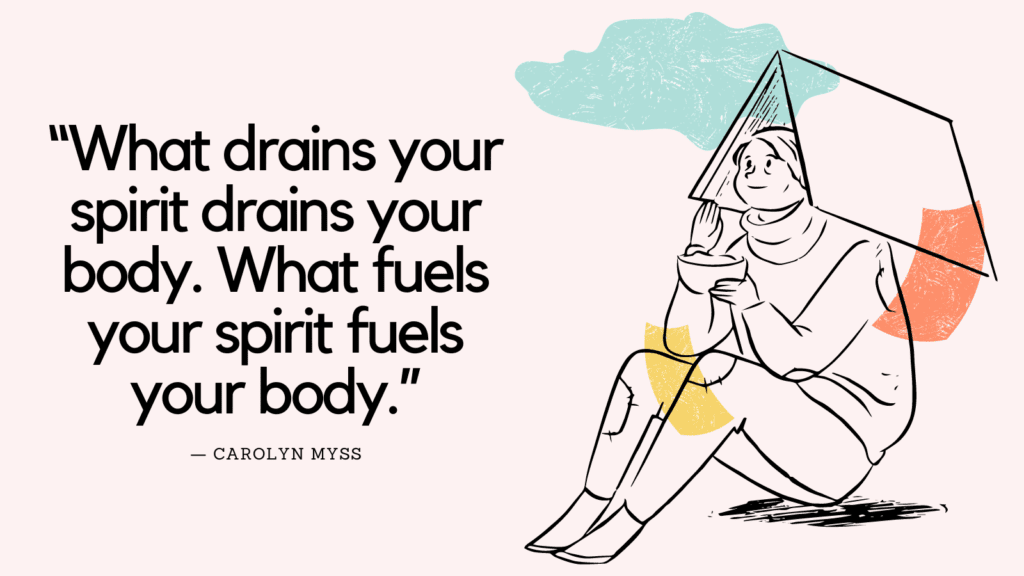This post contains some of the best shame journal prompts.
What Is Journaling?
Journaling is a private space to express yourself and explore your inner world.
Journaling is an accessible tool for emotional management.
The simple act of writing things down can help you relieve emotional distress and bring clarity around your needs.
Shame Journal Prompts
1. What is your first memory of shame?
2. Has shame been a lifelong problem for you?
3. At what age did you begin to notice that you’re struggling with feelings of shame? Has it worsened or improved over time?
4. Are you aware of any early experiences that may have caused shame?
5. How is shame causing problems in your life and relationships with others (e.g., friendships, romantic relationship, parenting)?
6. How would your life be different if you felt less shame?
Related: Top 10 Signs Of Toxic Shame In A Person (+Best 20 Healing Shame Exercises)
7. What situations or people trigger your feelings of shame?
8. What thoughts and feelings do you most often have when you feel shame?
9. How do you react to feelings of shame? Do you withdraw, overeat, get angry at yourself?
10. Do you tend to be judgmental with yourself when feeling shame? If so, what purpose is being hard on yourself serving?
11. Are you surrounded by people who shame you? If so, what boundaries can you set to protect yourself?
12. What would you say to a dear friend who is in the same situation and having the same critical thoughts about themselves? Say it to yourself.
Related: Top 13 Signs You Are Healing From Trauma (& How To Build Emotional Resilience)
13. If you feel shame, how can you calm yourself?
14. How can you show yourself more acceptance and compassion?
15. Do you find yourself often obsessively worrying about what others think of you? If so, what can you do to feel less obsessed?
16. Where can you ask for emotional support or help?
17. What do you need to forgive yourself for?
Related: Toxic Shame Quiz
Shame Worksheets
Benefits of Using Shame Journal Prompts?
Shame journal prompts can be helpful in the following ways:
1. Increased self-awareness: Journaling prompts help to identify the root causes of shame and guilt. This self-reflection can lead to a better understanding of oneself.
2. Improved mental clarity: Writing down thoughts and emotions can provide mental clarity and help to organize feelings and ideas.
3. Reduced stress and anxiety: By identifying and expressing emotions related to shame and guilt, journaling can help reduce overall stress and anxiety levels.
4. Enhanced problem-solving skills: Journaling allows for a space to brainstorm potential solutions to address shame and guilt, leading to improved problem-solving skills.
5. Increased self-compassion: By exploring and processing shame and guilt, journaling can lead to greater self-compassion and self-acceptance.
How to Use Shame Journal Prompts?
Here are some steps to follow to use them effectively:
1. Find a quiet and comfortable space where you can reflect and write without distractions.
2. Choose a shame journal prompt that resonates with you and start writing.
3. Allow yourself to fully explore your emotions and thoughts. Be honest and non-judgmental as you write.
4. Once you are finished writing, take some time to reflect on what you wrote. Consider how it made you feel and what insights you gained from the exercise.
5. Use the insights you gained to identify any patterns or behaviors that may be contributing to your feelings of shame. Use this information to create a plan for how you can release these feelings and move forward in a positive way.
Conclusion
Shame journal prompts can be a helpful tool for processing and healing from past experiences that have caused shame and guilt.
Remember to be gentle and compassionate with yourself as you work through the shame journal prompts.
This process can be difficult and emotional, but it can also be incredibly healing and liberating.



